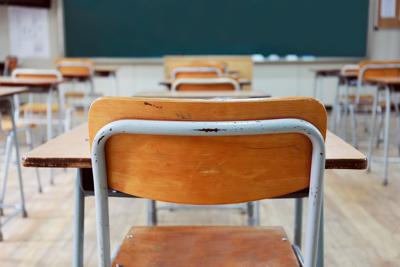Ontario Minister of Education Paul Calandra in Ontario. He is still being coy about which trustees, how many, exactly when and how. But he has been clear that he has no intention of supporting the existing 72 elected school boards across Ontario.
We are speaking up because we think this is a mistake.
Between us, we have about 40 years of experience as active mothers in parent associations and school councils and over 70 years of experience as elected school trustees. In addition, two of us were MPP’s for 34 years, during which time we both served as minister of education and one also served as premier. Three of us served as representatives on the Ontario Public School Board Association (OPSBA) and two served as president of OPSBA giving us all an understanding of schools across the province.
Local, elected school boards in Ontario were first established in 1816, long before Canada was formed as a country. Why is this significant? Because it demonstrates that job No. 1 for communities was to have accountable oversight of children’s schools. It remains the only level of elected official whose sole focus is education. We all believe that the most important thing that government does is to build the foundation of our democracy and that only happens with a strong publicly funded school system.
So how do trustees contribute to that vision?
As a trustee there is a constant flow of questions, concerns, ideas and problems that flow from individual students, their families and the community. Responding to those and helping the community navigate the school system is a critical part of the job.
But do school trustees do anything else besides navigate the bureaucracy and respond to complaints?
Elected school trustees have responsibility for local governance and decision-making, including setting local policies, in addition to oversight of the management of finances, school properties and resources and hiring the director of education in their district.
The development of local policies has had a profound and lasting impact on publicly funded education in Ontario over the 209-year lifespan of school boards.
In the time we have been involved in education in Ontario, school boards have developed many policies locally first that then have been adopted and scaled up across the province.
Some examples:
• Full-day kindergarten.
• Child care in schools and the seamless day.
• Parent involvement including school council models.
• Breakfast and nutrition policies.
• Destreaming and collection of race-based data.
• Safe schools policies.
• Co-op programs for high school students and continuing education for adult students.
• Indigenous education.
• Concussion policies.
• E³¦´Ç-²õ³¦³ó´Ç´Ç±ô²õ.
• Equity guidelines.
• Holocaust and genocide education.
• Policy guidelines around vaping, e-cigarettes, gambling ads and cell phones.
All of these ideas were developed, debated and in many cases implemented somewhere in the province at the local level before they became provincially mandated. The truth is if we were looking for innovation, we would find a best practice somewhere in Ontario’s nearly 5,000 publicly funded schools.
The current Ontario government is eager for the debate on education to focus on the bad behaviour of a few locally elected officials. Not one of us is defending irresponsible behaviour on the part of a school trustee, any more than we would defend irresponsible behaviour by a city councillor, an MPP or MP. Bad behaviour by any elected official is unacceptable. But it happens and when it does, we do not suggest we dismantle city council, the Legislature or the House of Commons.
Locally elected school trustees know their schools. They see the impacts of government policy and they work to make sure it is implemented well. And when there is need for an alternative, they work within the Education Act to come up with improvements, which all four of us have seen benefit students in every corner of Ontario.
In addition to that policy work, trustees are advocates to government for additional funding or changes to legislation. For example, they shine a light on the need for support for mental health support, accessibility changes, ventilation renovation and alternative programming for kids at risk. Trustees make decisions about students being expelled or suspended and so they understand the need for a safety net for those kids.
Trustees can speak truth to the power of other orders of government because they are elected by their communities.
It is perfectly reasonable to suggest that the role of trustees should be reviewed and we believe that boards themselves would welcome a rational, evidence-based discussion of how to improve the system by making the role of trustees more relevant and effective.
If the problem the minister is trying to solve is a lack of local accountability, doing away with the very people whose job it is to be accountable at the local level is the wrong answer. It will accomplish the exact opposite.
Error! Sorry, there was an error processing your request.
There was a problem with the recaptcha. Please try again.
You may unsubscribe at any time. By signing up, you agree to our and . This site is protected by reCAPTCHA and the Google and apply.
Want more of the latest from us? Sign up for more at our newsletter page.



























To join the conversation set a first and last name in your user profile.
Sign in or register for free to join the Conversation